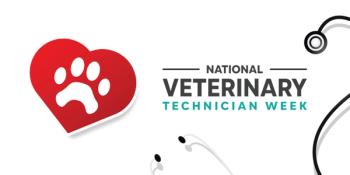
Soaring health insurance costs sting practitioners
As healthcare spending in the United States rises at more than five times the rate of inflation, veterinarians swallow another year of double-digit hikes in premiums while searching for ways to ease insurance costs for their families and employees.
As healthcare spending in the United States rises at more than five times the rate of inflation, veterinarians swallow another year of double-digit hikes in premiums while searching for ways to ease insurance costs for their families and employees.
The National Coalition on Health Care (NCHC) estimates 2004 private health insurance premiums increased an average 18 percent, a surge from 13.9 percent reported by the Kaiser Family Foundation in 2003. Small business owners already seeing higher co-payments, deductibles and monthly health insurance premiums remain frustrated with the inability to contain costs, NCHC leaders say, and practitioners seeking personal or family insurance find little or no relief with the American Veterinary Medical Association's (AVMA) Group Health and Life Insurance Trust (GHLIT) (see story, page 78). The program dropped employee medical coverage a decade ago and now limits health insurance to individual DVMs and their families.
"It's a large expense and problem for even the largest companies, so you can guess how bad it is for small businesses," NCHC Executive Director Pat Schoeni says. "They pay higher premiums anyway. It's just too gigantic a problem, and it's not getting any better. Something has got to be done."
Going great lengths
Veterinarian small business owners find it especially tough as female employees often rely on spousal insurance in lieu of a group plan with the practice. That leaves remaining staff with less purchasing power to field higher costs. Oftentimes, it forces the practice owner to eat the difference or drop coverage.
Table 1: NCVEI reports on insurance costs
Dr. Warren Kaplan is a veterinary employer who still funds employee health insurance 100 percent.
"I swallow hard and I choke, and so far I've been able to do it," says Kaplan, owner of Setauket Animal Hospital in Setauket, New York. "It's a very good perk and buys a lot of loyalty. But to be honest, who knows how long I will be able to last."
To cover his eight employees, Dr. Richard Headley, owner of Lincolnway Veterinary Clinic in Osceola, Ind., pays each staff member $175 a month. The remaining costs are left up to the employees, who also are charged with finding a plan.
"I started this system when the AVMA dropped its employee plan," Headley says. "I just didn't have the time to research all the companies and their services, so I make it my staff's responsibility."
Negotiate for better rates
Watching his office manager spend weeks researching staff medical policies sent Dr. Bill Craig to a broker to shop for health insurance.
"The first year we did this it was a nightmare," says Craig, owner of Ingram Park Animal Hospital in San Antonio, Texas. "Then we got a flyer in the mail offering a broker's services. They go out and get bids in an attempt to save you money. We let the staff decided what they want because they're the ones who are paying."
Outsourcing with an insurance broker or human resource firm is smart, says Dr. Marsha Heinke, a practice management consultant based in Grafton, Ohio.
Dr. Marsha Heinke
"Health insurance is a hairy thing to be in nowadays," she says. "You really have to become pretty savvy concerning employee benefit laws in your state because there's no blanket rule of thumb. You have to do the investigation yourself and stay up-to-speed or, better yet, get in alliance with someone who knows the industry."
Be consistent
Legal knowledge also is a must, Heinke adds, because small business owners can be accused of discriminating against employees.
"Veterinarians are notoriously penny pinching, but the cost of not doing things right is huge," she says. "Make sure your plans are in order. Be sure to offer the same insurance and make the same payments for everyone. If there's potential for contingent liability, the insurance agency can come in and rescind your policy."
Newsletter
From exam room tips to practice management insights, get trusted veterinary news delivered straight to your inbox—subscribe to dvm360.






